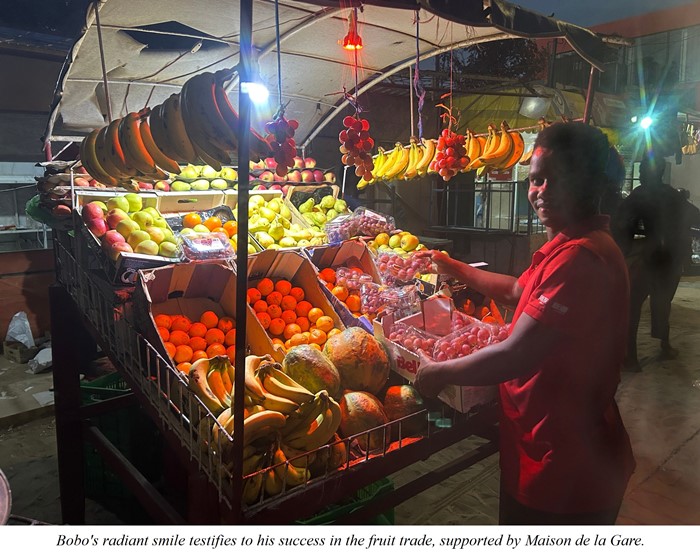News from Maison de la Gare
You Make Miracles Happen
Tweeter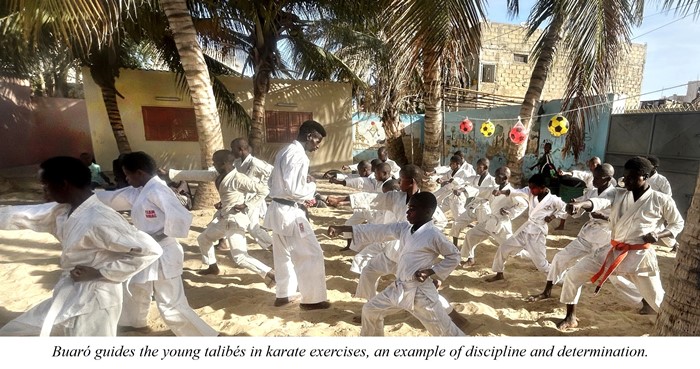
24 hours with Maison de la Gare and the talibé children
Having just returned from two weeks at Maison de la Gare, I am filled with gratitude.
Gratitude for the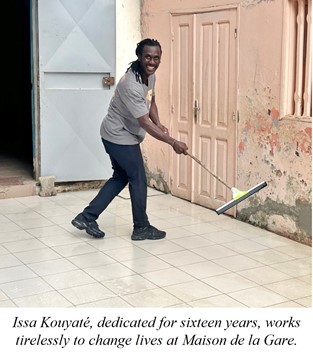 incredible staff members who dedicate themselves every day to giving
the begging talibé children the chance of a better life. Gratitude to every one of you,
our donors and supporters, who make it all possible. And gratitude to the many hundreds
of begging street children who put their trust in Maison de la Gare and its
staff every day.
incredible staff members who dedicate themselves every day to giving
the begging talibé children the chance of a better life. Gratitude to every one of you,
our donors and supporters, who make it all possible. And gratitude to the many hundreds
of begging street children who put their trust in Maison de la Gare and its
staff every day.
Entering the center early on a Thursday morning, my first image was of Buaró, himself
a former talibé, leading 20 young boys through rigorous karate routines. In their
spotless white outfits, it was hard to believe that these are begging street children
who normally wear rags and live without family, reasonable shelter, hygiene facilities
or even potable water. What I saw were dedicated youth learning a skill and
believing in themselves.
Walking on towards the emergency shelter building, I met Issa Kouyaté washing the area
in front of the classrooms, preparing it for the hundreds of children who use the space
during the 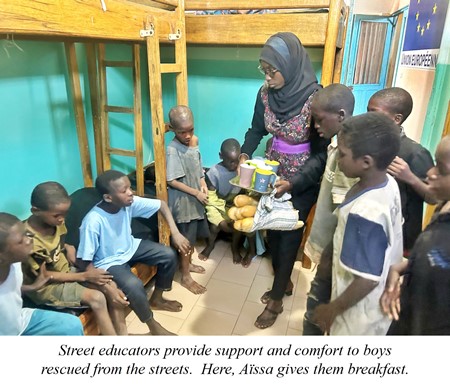 day. Maison de la Gare is the realization of Issa’s determination to
change the future for the talibé children. For sixteen years, he has given his time
and his energy, indeed his life, to this goal.
day. Maison de la Gare is the realization of Issa’s determination to
change the future for the talibé children. For sixteen years, he has given his time
and his energy, indeed his life, to this goal.
Arriving in the shelter, I was shocked to find 14 boys in the tiny room with its four
bunk beds. The night rounds team had recovered four boys from the streets on Monday
night. Three of them had been reintegrated in their daaras or their families. But
13 more had been recovered from the streets on Wednesday night! Each of these boys
has a story of abuse and trauma. Many had run from their daaras after severe beatings.
While I was with them, Aïssa, one of the street educators, brought them a morning
breakfast. Later, I saw several of them in her office, wearing new clothes and
responding to her questions as she developed a case history for each of them.
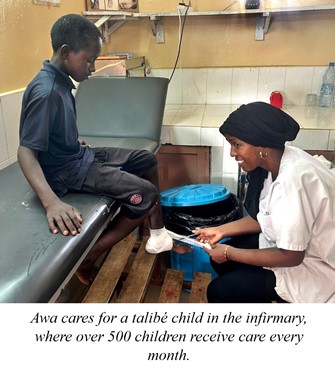
Leaving the shelter, I stopped in the infirmary where Awa Diallo was treating one of
the many talibé children waiting for care. Living as they do, they are extremely
vulnerable to disease and injury, and Awa, Alagie and volunteers working in the
infirmary are kept very busy. Over 500 children are treated there each month, and
many hundreds more receive care in their daaras.
In the afternoon, I sat in on Kalidou Baldé’s daily English class for fifteen minutes.
Over a dozen older talibés were fully engaged, giving Kalidou their full attention and
participating actively. Kalidou’s history with Maison de la Gare began in 2008 when
he was 10 years old and he attended French classes in the old railway station. He is
now a full staff member. Although he has had no formal education, he learned English
from volunteers, and his classes are a model for good pedagogical design and
student engagement.
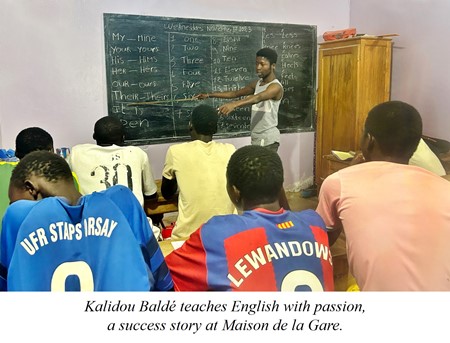
Leaving Kalidou’s class, it was almost time for the daily food distribution to the
children participating in the classrooms and other programs. I climbed to the
roof-top kitchen where Lalla Sène was hard at work preparing food for the boys. Lalla
is an inspiration for the children, leading them in sports and other activities as
they arrive at the centre. When we have volunteers, they are an enormous support
to Lalla’s efforts.
To round out my 24-hour story, I’ll go back to the evening before when Ndaraw Diop,
leader of the microfinance program, invited me to visit seven of our recent borrowers.
Six of these were former talibés who, with the help of this program, now believe that
they can support themselves and build a prosperous future. Each one of these visits
was very moving, 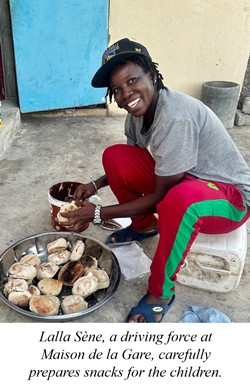 but two of them stood out for me. Babacar has overcome a physical
handicap to set up a successful chicken-raising business with the help of one of
our early loans. He now plans to expand his business and is preparing to return
for a second loan.
but two of them stood out for me. Babacar has overcome a physical
handicap to set up a successful chicken-raising business with the help of one of
our early loans. He now plans to expand his business and is preparing to return
for a second loan.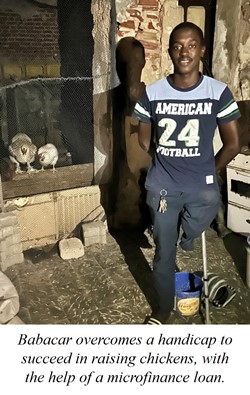
Bobo has just received a second loan, expanding his retail fruit business to include
more perishable products thanks to a new refrigerator. He showed me photos of retail
fruit shops in France, saying this is what he wants to build. He is well on his way!
The microfinance program is proving to be one of the most powerful vehicles for
supporting older talibé youth in becoming fully self-supporting.
Which brings me back to you. Well over half of the funding that makes possible
Maison de la Gare’s work comes from you, the individuals around the world who
follow our work and support us. Your contributions are changing lives, and we
are deeply grateful.
__________
The author, Canadian Rod LeRoy, has worked with Issa Kouyaté and Maison de la Gare since 2008.
